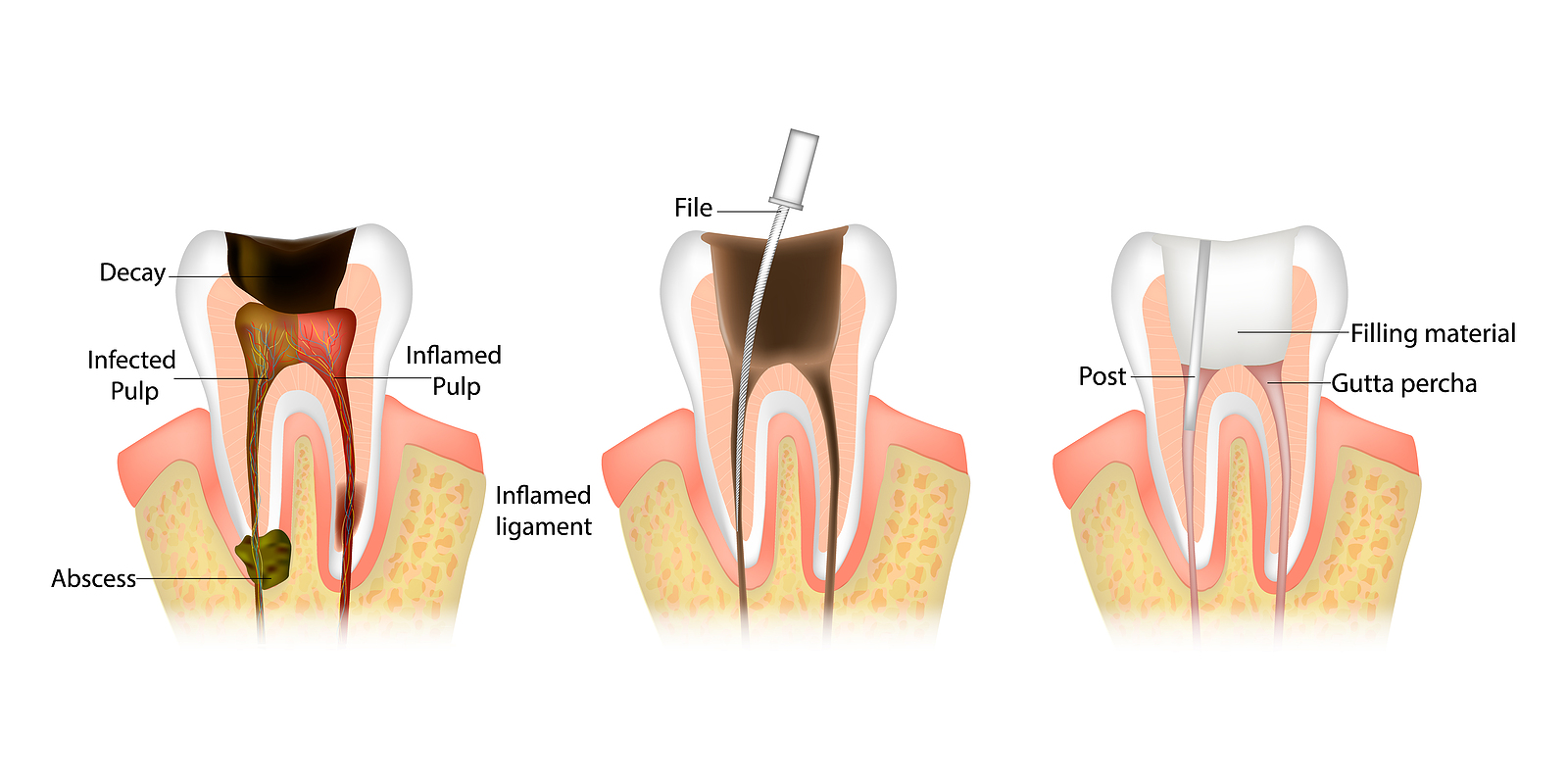Root canal treatment in Turkey is a widely sought-after dental solution for patients looking to preserve their natural teeth. It addresses issues like decay or infection. Turkey has become a prominent destination for dental care due to its affordable pricing, advanced clinics, and experienced dentists who deliver exceptional results.
Why Saving Natural Teeth Matters
The health of your teeth and the tissues inside them matters because they directly affect not only your ability to chew and speak comfortably but also your overall oral and systemic health. When the pulp, the soft inner tissue of a tooth containing nerves and blood vessels, becomes infected or inflamed due to decay, trauma, or deep cracks, it can cause severe pain and swelling. If left untreated, the infection can spread to surrounding bone and even impact general health. Therefore, preserving natural teeth through timely treatments like root canals is essential. They maintain the integrity of your bite, prevent shifting of other teeth, and help you avoid more extensive and costly procedures such as extractions, implants, or dentures.
Causes of Tooth Pulp Damage
Tooth pulp (the soft inner tissue containing nerves and blood vessels) can become inflamed or infected due to several factors. The most common causes include:
- Deep tooth decay that reaches the pulp.
- Repeated dental procedures on the same tooth, weakening its structure.
- Cracks or fractures in the tooth that allow bacteria to enter.
- Trauma or injury (such as a blow to the face) that damages the pulp even if the tooth doesn’t visibly break.
- Advanced gum disease that spreads to the tooth root.
Treatment: How Root Canals Save the Tooth
A root canal works by removing the infected or inflamed pulp from inside the tooth while preserving the outer structure. After carefully cleaning and disinfecting the canals, the dentist fills them with a special material to seal the space. This prevents bacteria from re-entering. Finally, the tooth is usually restored with a crown or filling to bring back its strength and natural appearance. This treatment not only eliminates pain and infection but also allows patients to keep their natural tooth instead of losing it.
Root Canal: The Procedure

Root canal treatment is designed to clean and seal infected root canals to save a damaged tooth. The process involves removing the infected pulp, disinfecting the area, and sealing it to prevent future infections. This treatment restores the tooth’s function and eliminates pain.
Before Operation
Before undergoing the procedure, your dentist will conduct a thorough examination, including X-rays, to assess the tooth’s condition and plan the treatment. Local anesthesia is administered to ensure the procedure is pain-free. Patients are also advised on any pre-treatment requirements, such as oral hygiene practices or avoiding certain foods.
During Operation
The dentist begins by creating a small access point in the tooth to reach the infected pulp. After carefully removing the damaged tissue, the canals are cleaned, disinfected, and shaped. A biocompatible material is then used to fill the canals, and the area is sealed to prevent reinfection. The entire procedure is performed with precision using advanced tools for maximum comfort and efficiency.
After Operation
Post-procedure, some mild discomfort or sensitivity may occur, but it typically subsides within a few days. A dental crown is often recommended to strengthen the treated tooth and restore its appearance. Patients are advised to maintain good oral hygiene, follow dietary recommendations, and attend follow-up appointments to ensure long-term success.
Who is a Good Candidate for Root Canal Treatment
Severe Tooth Pain: Individuals experiencing persistent or severe tooth pain, especially when chewing or biting, are strong candidates for root canal treatment.
Sensitivity to Temperature: People with heightened sensitivity to hot or cold foods and drinks that lingers even after the source is removed.
Swollen or Tender Gums: Candidates may exhibit swelling, tenderness, or a small pimple-like bump on the gums near the affected tooth.
Deep Decay or Damage: If a cavity or tooth injury has reached the pulp, exposing it to infection, root canal treatment is necessary.
Tooth Discoloration: A tooth that has become discolored or darkened due to internal damage or decay may require root canal therapy.
Infection Symptoms: Those showing signs of dental infection, such as fever, bad breath, or a foul taste in the mouth, may need the procedure.
Tooth Preservation Priority: Patients who wish to save their natural tooth rather than opting for extraction and replacement.
If you have one of these dental diseases or many of them, you are a good candidate for root canal treatment.
If you’re considering enhancing your overall oral health and aesthetics, Turkey is also renowned for other dental procedures like the Hollywood Smile and dental implants. These treatments are tailored to give you a perfect smile and restore missing or damaged teeth with precision and care.
The Hollywood Smile focuses on achieving a flawless, radiant smile by addressing tooth shape, color, and alignment through veneers or crowns. Similarly, dental implants are an ideal solution for replacing missing teeth, providing a natural look and long-lasting durability.
For detailed insights, check out our articles on Hollywood Smile and dental implants. They explain how Turkey’s advanced dental care can transform your smile and confidence.
Common Myths About Root Canals
- “Root canals are extremely painful.”
This is the most widespread myth. In reality, modern anesthesia and techniques make root canals no more uncomfortable than getting a cavity filled. The procedure actually relieves pain rather than causing it. - “It’s better to just pull the tooth.”
Saving your natural tooth is almost always better than extracting it. A root canal allows you to keep your natural bite, avoid shifting teeth, and reduce the need for costly replacements like implants or bridges. - “The tooth will not last long after a root canal.”
With proper restoration and care, a root canal–treated tooth can last a lifetime. Adding a crown further strengthens and protects it. - “Root canals cause illness.”
This outdated myth is based on research from the early 1900s that has since been debunked. There is no scientific evidence linking root canals to systemic diseases. - “You need multiple long appointments.”
Most root canals today can be completed in one or two visits, thanks to advanced technology and improved instruments.
FAQs
1. Is a root canal painful?
No, in fact, the procedure is designed to relieve pain caused by an inflamed or infected tooth pulp. Thanks to modern local anesthesia and advanced instruments, most patients report feeling little more than pressure during the procedure. Afterward, some mild soreness or sensitivity is normal, but this usually resolves within a few days with over-the-counter pain relievers.
2. How do I know if I need a root canal?
The most common signs include severe tooth pain when chewing or biting, lingering sensitivity to hot or cold foods, swelling of the gums, darkening of the tooth, or a pimple-like bump on the gums. However, not every infected tooth shows obvious symptoms. Dentists typically confirm the need for a root canal using X-rays and clinical examination.
3. How long does a root canal take?
Most root canals can be completed in one visit, lasting 60–90 minutes. More complex cases, such as teeth with multiple canals, curved roots, or extensive infection, may require two or more appointments.
4. What is done during the procedure?
The dentist numbs the tooth, makes a small opening in the crown, and carefully removes the infected pulp tissue from inside the root canals. The canals are then cleaned, disinfected, shaped, and sealed with a biocompatible filling material. Finally, the opening is sealed with a temporary or permanent filling, and in most cases, a crown is placed later for added protection.
5. Will I need a crown after a root canal?
For back teeth (molars and premolars), yes — a crown is almost always recommended because these teeth endure heavy chewing forces and need reinforcement. For front teeth, a filling may suffice if enough natural tooth structure remains.
6. How long will the tooth last after a root canal?
With proper care, including good oral hygiene, regular checkups, and placing a crown when necessary, a root canal–treated tooth can last a lifetime.
7. Are root canals safe?
Yes. Root canal therapy is a routine and safe dental procedure supported by decades of research and clinical success. Modern sterilisation, sealing materials, and imaging techniques have made it highly predictable with a success rate exceeding 90%.
8. Can children need root canals?
Yes, though the procedure is slightly different. For baby teeth, a modified version called a pulpotomy or pulpectomy may be performed to preserve the tooth until it naturally falls out. For permanent teeth in children, a standard root canal may be done if the pulp is severely infected.
9. How much does a root canal cost?
The cost varies depending on the tooth’s location, the complexity of the case, and whether a specialist (endodontist) performs the procedure. On average, front teeth are less expensive, while molars cost more due to their multiple canals. While it may feel like an investment, it’s usually less expensive long-term than extracting the tooth and replacing it with an implant or bridge.
10. What happens if I don’t get a root canal when I need one?
The infection will likely worsen, causing more pain, swelling, and possible abscess formation. In severe cases, bacteria can spread to other areas of the face or even the bloodstream, posing serious health risks. Ultimately, the tooth may need to be extracted if left untreated.

